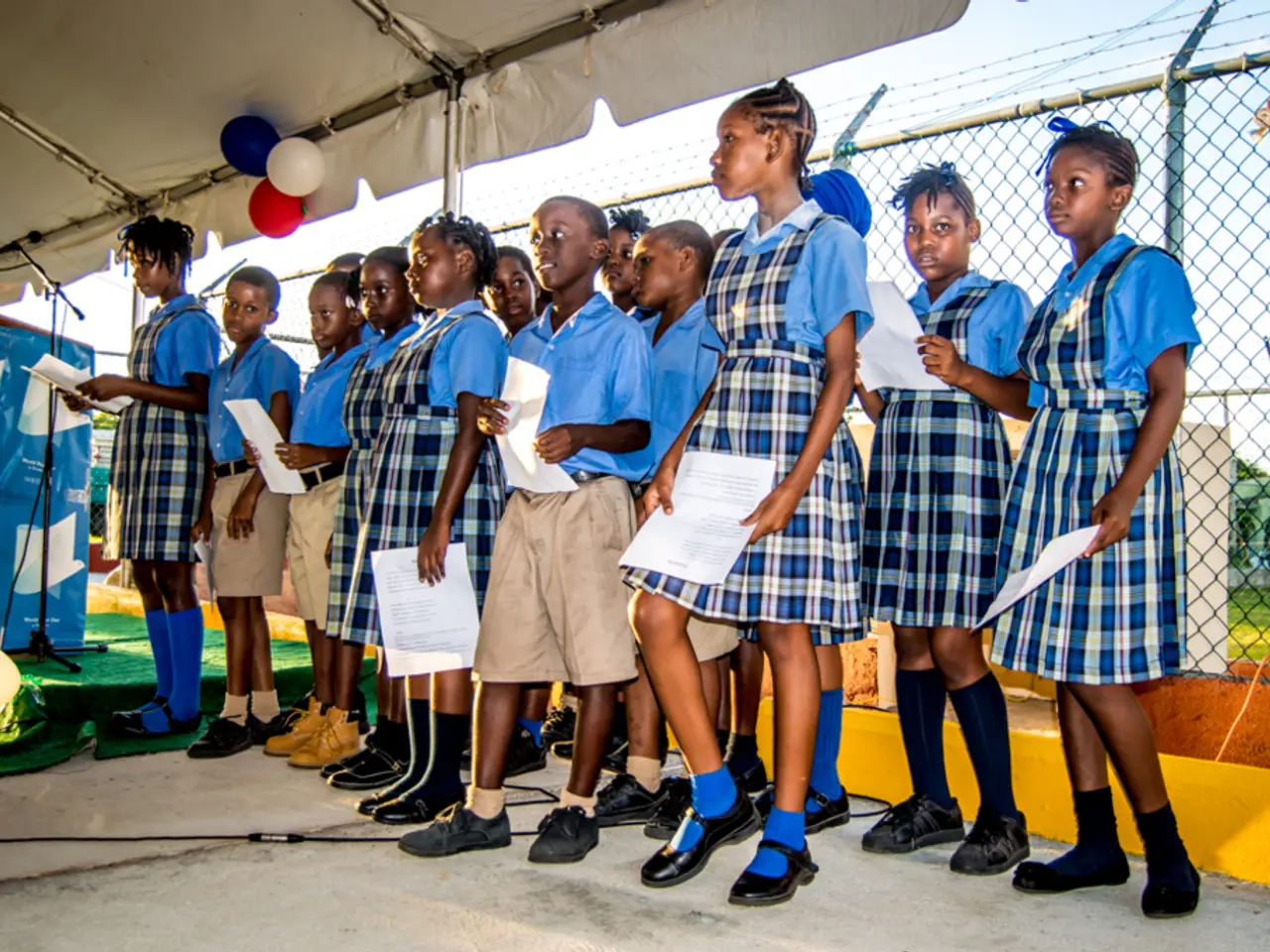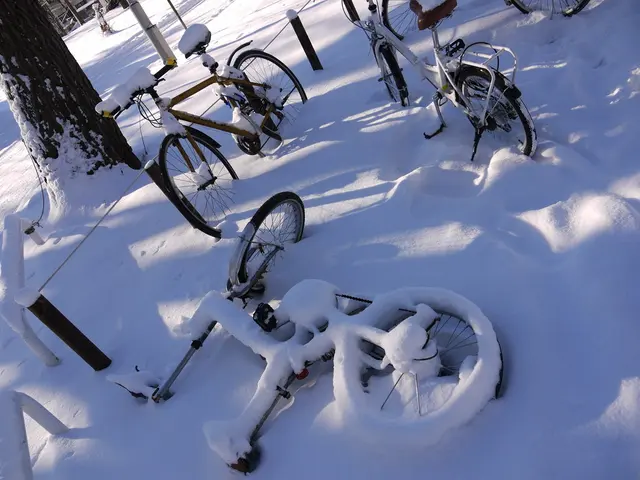Approximately twenty percent of students in Almaty have opted for abandoning conventional educational methods
In the bustling city of Almaty, the transition back to traditional, in-person learning is gradual and contingent on the number of infected cases within the city. As reported by a correspondent from Almaty.tv, schools are meticulously following sanitary rules to ensure the safety of students and staff.
The return to school has been phased, with rotating groups for grades 1-3, 4th graders attending school in the second quarter, and 9th and 11th graders returning in January 2021. Sadvakas Baigabulov, deputy head of the city's Department of Sanitary and Epidemiological Control, emphasizes the importance of learning to live with the coronavirus, while maintaining social distancing, mask-wearing, disinfection, and regular PCR tests.
Upon entering school, students must pass through a disinfection arch, meet a healthcare worker, and have their temperature checked. At Almaty Polytechnic College, only first-year students living alone in dorms are allowed to attend offline classes. To accommodate those with health concerns related to COVID-19, approximately 20% of students have chosen online education. A special form has been developed for these cases, outlining all the risks and valid reasons for online learning.
Halida Islamova, deputy director of School No. 95, notes that younger students have their temperature measured in the morning, and masks are distributed if needed. The school is thoroughly disinfected, and students are divided into groups of 10 and sit alone, maintaining social distancing and wearing masks.
For students like Janeil Abdykazym, an 11th grader, the return to school is a welcome change. She expresses eagerness, stating that live interaction and in-person learning provide better knowledge compared to online learning. Her sentiments are echoed by Lyucher Kharsanov, another 11th grader, who finds lessons more understandable in school compared to online learning.
Diana Rakhimbekova, a student at Almaty Polytechnic College, emphasizes the importance of sanitizing hands, avoiding touching each other, and maintaining distance. Yuri Krynwald, another student at the college, adds that they follow quarantine measures, do not move between rooms, and are allowed to go out onto the college and dormitory territory to get fresh air.
Despite the efforts to ensure safety, some parents remain hesitant to send their children to school, especially if the children have chronic illnesses, weak immune systems, or have elderly relatives at home. The search results do not provide information about the specific epidemiologists in Almaty responsible for the gradual transition to traditional in-person learning or their recommended measures to reduce infection rates in the city. However, the focus remains on maintaining a safe and healthy environment for students and staff as they navigate the challenges of learning amid the pandemic.
Read also:
- Setting Up and Expanding Operations at a Soil Blending Facility
- Regional University's healthcare system strengthened through collaborative partnership with Chancellor Dr Fiona Hill
- Reminisced University Trustee David M. Flaum as a 'fervent advocate' for the University and community
- Catastrophic wildfire smoke is projected to claim numerous lives by the year 2050, predicts new study








